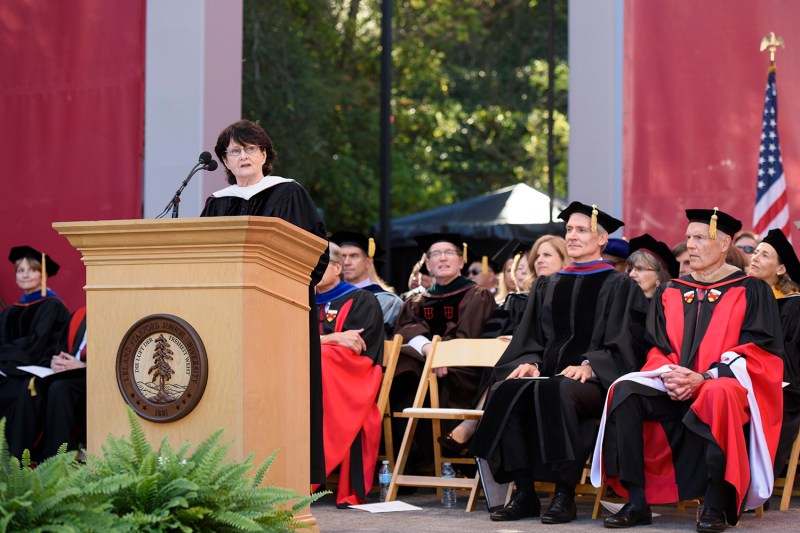Growing up, I never liked poetry. Rhymes seemed silly, and my sister’s beloved Shel Silverstein was boring. Poetry found me, though, when I dropped out of high school for medical reasons. Poetry came with Summer Whitmore, the teacher who homeschooled me for a few hours each day, four days a week. Summer saw me filled with physical and emotional pain and trauma, and declared we would read and write poetry each day. I was skeptical. Yet I soon appreciated poetry’s power to soothe the heart and cleanse the soul. Teaching me that:
“’Hope’ is the thing with feathers
That perches in the soul
And sings the tune without the words
And never stops – at all”
When I came to Stanford I wanted to continue to study the literature that had kept me going through years of sickness. So I sought out Eavan Boland. In her women poets class I wrote about my illness — first as I normally would, and then as she instructed without gender, realizing in the process that there is no such thing as genderless poetry for me; gender is inherently part of how I was, how I am and how I will forever be treated as a patient and a person, and my poetry comes straight from the vein. It is as essentially me as my blood.
In her Irish literature class I learned about how a country used art and words to create, preserve and shape its national identity while subjected to colonialism and theocracy. But most importantly, in her poetry and poetics class, listening to her read, and then myself writing about, Emily Dickinson’s “Hope” and Paul Celan’s “Death Fugue,” I found myself. I confirmed that words and their magical, mysterious power are what I want to study for the rest of my life. I found the balance between beauty — “the little bird/that kept so many warm” — and pain — “black milk of daybreak” — that is the key not only to art but to life. From these lessons I knew that I want to go to graduate school for English literature to make this a lifelong journey of discovery. And when I told Professor Boland of my decision, her enthusiasm and encouragement gave me the courage to take the plunge. Thanks to her, I am starting a co-term in modern thought and literature next fall.
But perhaps the most crucial aspect of my relationship with Professor Boland was that in a tiny seminar room in the history building and at the giant round table in Margaret Jacks, she gave me a home at Stanford. She created classrooms that I was eager to enter each and every week — to enter and be taken away by her voice as she read poems aloud, prompted our discussions and offered the insights that only a true poet could have. Professor Boland confirmed and constantly reinvigorated my belief that doctors save lives but poets save souls. My life, Stanford and the world have lost a vital voice; I will never forget what Professor Boland did for me.
Contact Jen Ehrlich at Jene91 ‘at’ stanford.edu.
The Daily is committed to publishing a diversity of op-eds and letters to the editor. We’d love to hear your thoughts. Email letters to the editor to [email protected] and op-ed submissions to [email protected].
